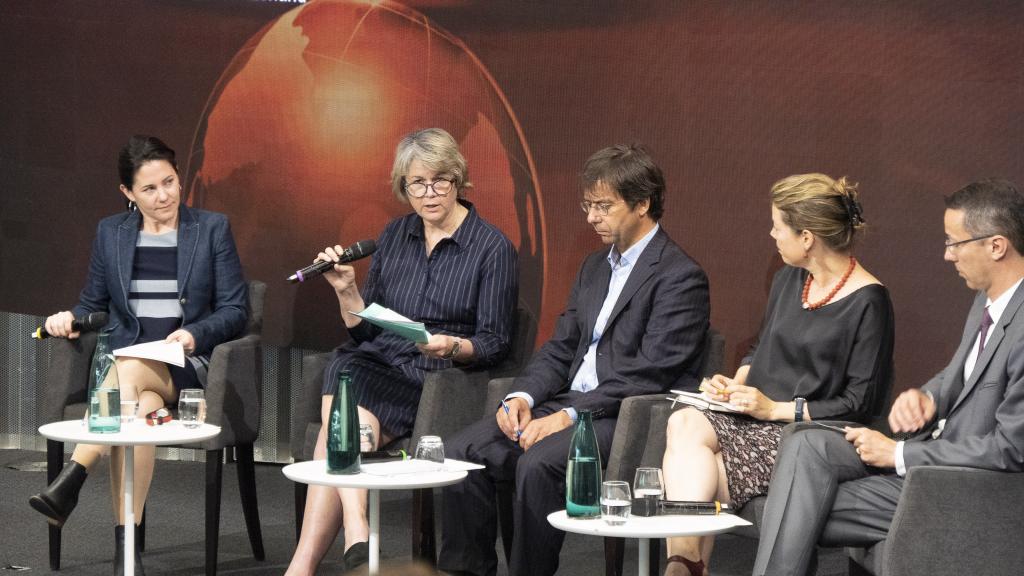Cecilia Cannon, Researcher for the Global Governance Centre at the Graduate Institute, underlined that “the not-for-profit sector is facing immediate, pressing challenges with respect to financing. Governments and other donor organisations have shifted towards a short-term, projects-based financing model. Combined with a changing political landscape, increasing donor requirements for NGO accountability, a shrinking space for civil society, and the localisation agenda that increases funding to local actors, international NGOs are needing to assess their current governance models.”
Panelists included Brigette De Lay, Director, Prevent Child Sexual Abuse Programme, Oak Foundation; Ignacio Packer, Executive Director, International Council of Voluntary Agencies; Manon Schick, Director of the Swiss Section, Amnesty International; and Marc Secretan, Audit Partner specialising in not-for-profit organizations, PwC Switzerland.
Ms Schick, said that this was a “challenging period” for not-for-profits and NGOs. She highlighted that funding for Amnesty International did not come from governments, which allowed the organisation to remain independent. Amnesty International, which primarily obtains its funds from individual members and private donations, is facing increasing competition with other actors now also vying for individual private donations. This is putting pressure on the organisation to cut posts, and also invest more in fundraising. With rising attacks against NGOs and not-for-profit workers, Ms Schick explained that protection costs are also rising and that they are looking into new funding avenues.
Mr Packer discussed four disruptors in civil society’s engagement on a global scale: planetary, political, technology and values. Planetary disruptors took into account environmental factors. The political disruptors included reduced space for civil society organisations to operate but also that these organisations had double, or even triple mandates. Speaking about technology, he mentioned that those “who own the data, own the power”, but also that innovation was lacking. And in terms of values, there was a huge problem of impunity as well as a decline in human rights, international humanitarian law and civic rights.
Speaking from the perspective of a donor organisation, Ms De Lay explained how the Oak Foundation works to overcome some of these financial and governance challenges. For nearly ten years, Oak Foundation has responded to the call from not-for-profits for more core funding to support organisational costs and longer-term strategies, as well as capacity building. This effort, she said, was strongly linked to the Foundation’s core values that prioritised partner needs: governance, accountability, finances and communication.
The role of an auditor, noted Mr Secretan, was threefold, and included trust, accountability and safeguards. Providing management advice did not fall under the umbrella of tasks for auditors.
In trying to find solutions, Ms Cannon said that the different stakeholders, including governments, international organisations and the not-for-profit sectors, need to hold frank discussions about what role international and local not-for-profit organisations are expected to play in implementing international agreements and addressing today’s global challenges, as well as the organisational and financial support they require to do so effectively. She stressed that, “As governments and international organisations continue to place mandates on different stakeholders, they have to also invest in making sure that it is financially sustainable for these stakeholders to carry out their work”.
Read more about the event on “The Limits of Not-for-Profit Operating Models”.


